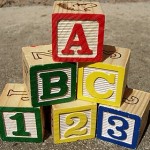Who Is Stephen Crashen?
Stephen Krashen, an expert linguist specialized in theories of language acquisition and development has researched the area of non-English and bilingual language acquisition.
In what he originally called the input hypothesis, Krashen claims that humans acquire language only through comprehensible input.
“Language acquisition does not require extensive use of conscious grammatical rules, and does not require tedious drill.”
“Acquisition requires meaningful interaction in the target language – natural communication – in which speakers are concerned not with the form of their utterances but with the messages they are conveying and understanding.”
“The best methods are therefore those that supply ‘comprehensible input’ in low anxiety situations, containing messages that students really want to hear. These methods do not force early production in the second language, but allow students to produce when they are ‘ready’, recognizing that improvement comes from supplying communicative and comprehensible input, and not from forcing and correcting production.”
“In the real world, conversations with sympathetic native speakers who are willing to help the acquirer understand are very helpful.“
What is comprehensible input?
Krashen’s Formula
Image by Sigurd Decroos
How Many Language Structures Can Humanity Acquire?
Let’s look at a formula he created:
If I represents previously acquired linguistic competence and contextual knowledge, the formula can express that humans move from i to i+1 by understanding input that contains i+1. The +1 represents new knowledge or language structures that humans have the capacity to acquire.
It is important to understand that just any input is not sufficient to be +1 but the supposed input must be comprehensible.
What Are The Consequences of Krashen’s Hypothesis?
- Talking (output) is not acquisition.Simply speaking in the target language does not result inevitably in language acquisition. Although speaking can indirectly assist in language acquisition, the ability to speak (output) is not the cause of language learning or acquisition but is the result of language acquisition. This does not necessarily imply progress.Today, especially on the Internet, one finds many teachers who are willing to spend their time in simple conversation with the student.My experience with students who have this type of ‘English learning’ in mind has been disappointing. Most students are intelligent enough to see for themselves that just talking does not guarantee progress.
- When enough comprehensible input is provided, i+1 is present (progress).If the language presented in the learner’s course, through materials and teachers’ participation, provides enough comprehensible input (especially through the use of comprehensible examples), then the structures can be acquired. Of course, this does not mean the learner will produce perfect output of the newly acquired structure but grammatical accuracy can be ascertained and developed better in this method than by direct grammar teaching.
- The teaching order is not based on the natural order
Learners will acquire the language in a natural order by receiving comprehensible input.The teacher and the choice of materials should enhance the quickness by which the learner takes the necessary steps in an natural order.
Krashen’s Theory Applications
- Class time should be filled with as much comprehensible oral input as possible
- Teachers must modify their speech so that it is comprehensible
- Focus of instruction is on the meaning and not the form
The Acquisition-Learning Hypothesis
The acquisition-learning hypothesis is probably the most important of Krashen’s theories and the most widely known. According to the theory, there are two independent systems of second language performance: ‘the acquired system‘ and ‘the learned system‘.
- The ‘acquired system‘ or ‘acquisition‘ is the product of a subconscious process similar to the natural process of acquisition in L1. This process requires meaningful interaction in the target language – natural communication – in which participants are mainly concentrated in the communicative act and not so much in the form of their utterances.
- The ‘learned system‘ or ‘learning‘ is the product of formal instruction and it comprises a conscious process which results in conscious knowledge ‘about‘ the language, for example knowledge of grammar rules. According to Krashen ‘learning‘ is less important than ‘acquisition‘.
In my experience the balance of these two factors is about 80% acquisition and 20% learning. Krashen seems to oppose ‘learning‘ to ‘acquisition‘ but I think these two concepts work together in an efficient way.
The Monitor Hypothesis
The Monitor hypothesis helps to understand the relationship between acquisition and learning.
The monitoring function is the practical result of the learned grammar.
The acquisition system is the utterance initiator, while the learning system performs the role of the ‘monitor‘ or the ‘editor‘. The ‘monitor‘ acts in a planning, editing and correcting function when three specific conditions are met:
- The second language learner has sufficient time at his/her disposal. (This influences the hesitations and pauses that the learner makes.)
- The learner focuses on form or thinks about correctness (This influences the delivery of the utterance.)
- The learner knows and uses the correct rule (This can be called ‘accuracy‘ of the utterance.)
In practical terms of learning, the role of the monitor is – or should be – a minor one. One practical use of the monitor would be initiated by the teacher to correct deviations from ‘normal’ speech and to give the learner’s speech a more ‘polished’ appearance.
The Natural Order hypothesis suggests that the acquisition of grammatical structures follows a ‘natural order’ which is predictable. For any given language, certain grammatical structures are acquired immediately while others take more time.
The implication of the natural order hypothesis is that a language program syllabus drives the learner into a pre-determined path of studies and rejects grammatical sequencing when the goal is language acquisition.
The Input hypothesis is Krashen’s attempt to explain how the learner ‘acquires’ a second language.
The Input hypothesis is only concerned with ‘acquisition‘, not ‘learning‘.
The acquirer’ experiences progress in the target language in the ‘natural order’ when he/she receives second language ‘input’. As stated before, it is important that the ‘input‘ is one step beyond the acquirer’s current stage of linguistic competence.
The Affective Filter hypothesis explains that a number of ‘affective variables’ play a helpful role in second language acquisition. These variables include: motivation, self-confidence and anxiety.
Learners with high motivation, self-confidence, a good self-image, and a low level of anxiety will be more successful in second language acquisition. On the other hand, low motivation, low self-esteem, and anxiety can combine to ‘raise‘ a sort of ‘affective filter‘. This mental block prevents comprehensible input from serving its purpose for successful acquisition. One must keep in mind however, that even when positive affective variables are present it is not always sufficient on its own for acquisition to take place.
This is a vital key for the success of the relationship between teacher and learner. When both participants are genuinely involved in real communication, the lesson has more possibilities for learning to take place (and can be fun as well!).
The Role of Grammar in Krashen’s View
The only instance in which the teaching of grammar can result in language acquisition (and proficiency) is when the student and teacher are interested in the subject at hand and the target language is used for the explanation.
Very often, both teachers and students are convinced that the study of formal grammar is essential for second language acquisition.
When the skillful teacher can talk about grammar as the requirement for comprehensible input, coupled with the students’ genuine participation, the explanation is suitable for language acquisition. When the affective filter is low and the learner’s conscious efforts are on the subject matter the attention is on what is being talked about and not the medium.
Teachers and learners should be careful not to deceiving themselves. They can easily believe that it is the study of grammar that is responsible for the learners’ progress. In reality, when grammar is used as a meta-language for talking about grammar, progress comes from the medium and not the message. Any subject matter that holds the learner’s interest would do just as well.
Conclusion
In my work as a teacher, language-course writer, teacher-trainer and student of languages, I have seen where the benefits of comprehensive input can guarantee a measurable success in the learning experience.
Comprehensive input, when used skilfully by a knowledgeable teacher, should be the basis of each language lesson and, like a locomotive, can improve all of the language tasks (writing, reading, listening and speaking).
Furthermore, since most language learners are primarily interested in speaking and understanding the target language, comprehensive input, that leads to comprehensive output is probably what most learners are seeking in their language courses.
Director and Founder
VirtuAule English Language System
www.virtuaule.com





I am new to this forum, I am now in Ohio. I am all set to be present for a first-stage interview this coming Monday for an ESL teachng job. This is going to be my first job interview upon graduation. Please wish me all the best. And by the way, Have you came across any resource that is similar to this writing lesson learning site. I am not paying for anything, please let me have the link to any such free directories. Thanks.
Dear Admin,
I have done Master in English Literature but now would like to complete PhD in Second Language Acquisition. As you know I do not have Linguistic background I face some problems in writing a research proposal. Please email me names of the books which will help me in writing a research proposal. Thanks in advance
I started with a book titled ‘Power, Pedagogy & Practice‘ Editors Tricia Hedge and Norman Whitney (Oxford University Press)
The essay by B. Kumaravadivelu was extremely helpful.